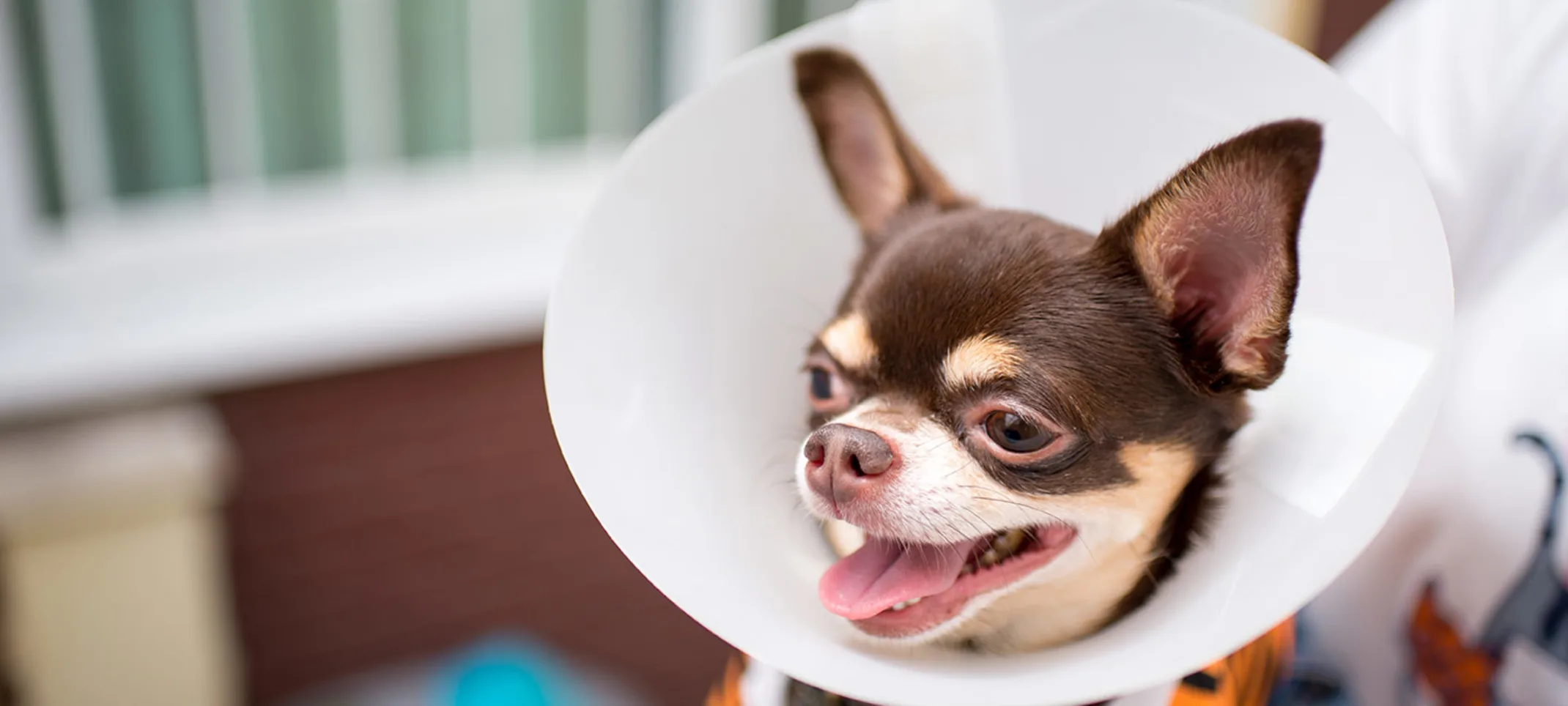Westside Animal Hospital
Soft Tissue Surgery
We perform soft tissue surgery for a number of medical reasons. This common surgery can be used for most anything non-joint or bone-related.

Overview
Soft tissue surgery is any surgery non-joint or bone-related, and can include ear, gastrointestinal, urogenital, skin reconstructive, and oncological surgeries. If soft tissue surgery is recommended for your pet, we will do everything possible to keep them safe and comfortable before, during, and after the surgery.
Our modern surgical suite is state-of-the-art. A trained technician closely monitors your pet throughout the surgery. We also utilize the most advanced computerized equipment to monitor your pet’s heart rate, blood pressure, body temperature, and blood oxygen saturation. The surgical suite is kept meticulously clean, and all personnel wear a cap and mask. Surgeons wear a cap, mask, sterile gown, and sterile gloves. Anesthetized patients are given intravenous fluids throughout the procedure. This helps maintain blood pressure and renal blood flow.
After surgery, patients are recovered in our quiet Intensive Care ward. Our trained staff will give your pet all the attention necessary to ensure a smooth recovery.
Our Surgical Philosophy:
We know you have many choices about where to have your pet’s surgery performed. We never claim to be the most inexpensive place to take your pet — we strive to be the best place to take your pet. What sets us apart from the rest?
We never schedule 20+ procedures per day; it’s next to impossible to provide the highest quality care if an “assembly line” approach is taken. Your pet is given personalized attention and care.
Our doctors take the time to perform a careful surgery. Pets are monitored continuously throughout the procedure; blood pressure, blood oxygen saturation, heart rate, respiratory rate, and body temperature are among a number of items we monitor carefully. Your pet’s body temperature is maintained via a warm-water circulating heating blanket (we never use electric heating pads, which can cause severe thermal burns).
Your pet recovers in our clean, quiet Intensive Care ward after surgery. Our wonderful technicians closely monitor your pet throughout the day after its surgery.
Our doctors place the highest priority on pain control. Our technicians follow a 5-point “pain scale” scoring system and are in close contact with your pet’s doctor so that pain is identified and treated if present.
During virtually all general anesthetic procedures that we perform, pets are given intravenous fluids. This is critical to maintaining proper blood pressure and adequate perfusion (blood flow) to the kidneys. Because a catheter is placed in your pet’s vein (usually in a front paw), a port is always available for quick administration of emergency drugs (in the unlikely event that they are required).
Our doctors adhere to the strictest of surgical standards. Sterility is of paramount importance.
We are a voluntary member of the American Animal Hospital Association — an association that ensures that we are on the cutting-edge of patient care.
We recognize that many pet owners are really concerned about their pet’s surgery. We are happy to give surgical suite and general hospital tours ahead of time to help ease your concerns — please speak with our hospital manager to arrange a visit.
Why would my pet need soft tissue surgery?
Veterinary soft tissue surgery is recommended for a variety of reasons. The most common soft tissue surgeries for animals are spay procedures, neuter procedures, hernia repairs, and mass removals. More advanced soft tissue surgeries include cystotomy, abdominal exploratory surgery, and splenectomy.
When would soft tissue surgery be needed?
Soft tissue surgeries are used for a wide array of medical conditions. These include "routine" procedures such as spays and neuters, as well as mass removals, trauma, and emergency surgery, wound management, and reconstructive procedures.
How do you care for my pet during surgery?
Our veterinarians adhere to the highest level of care standards for all surgical procedures. Our highly skilled doctors place the utmost emphasis on pain management to ensure your pet is safe and comfortable throughout the treatment process. We believe that keeping our patients safe and comfortable before, during and after surgery is of the greatest importance and an essential component of your pet's care.
Preparing Your Pet For Surgery:
Non-emergency surgeries are scheduled by appointment. Please call if you discover you cannot keep an appointment. Patients undergoing a surgical procedure must be current on Rabies and Distemper vaccinations.
Please withhold food from your pet starting at 8:00 p.m. the evening before surgery. Water may still be left down, but please do not let your pet gulp large amounts of water the morning of surgery.
Drop off your pet at 7:50 a.m. on the morning of surgery. Alternatively, you may drop your pet off the evening before (weekdays only) between 4:00 p.m. and 5:45 p.m. at no extra charge. Most pets undergoing surgery will have hair shaved from the area. The skin is prepared with an antiseptic, which may cause mild temporary staining of the surrounding hair.
After Surgery:
We will call you after your pet’s procedure is completed. The length of your pet’s stay will depend upon the surgical procedure performed. You may ask about the length of hospitalization at the time you schedule your pet’s surgical appointment. We will provide you with specific home-care instructions when you pick up your pet. For pets with sutures or staples: these must be removed here 10 days after surgery. There is no charge for suture/staple removal unless you are told otherwise. It is important to keep your pet quiet for at least 3-5 days after most surgical procedures. This will help reduce the degree of swelling and bleeding.
